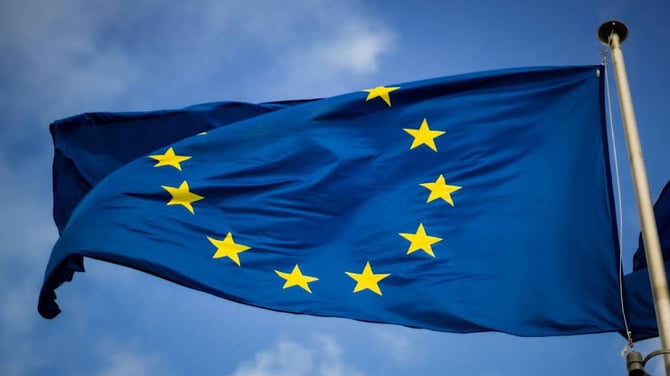Eurozone Inflation Rises to 2.6% as Euro Hits 9-Month High

Eurozone inflation increased to 2.6% year-on-year in July, slightly up from 2.5% in June. This rise beat initial economist estimates of 2.4% and reinforced concerns about persistent inflationary pressures within the bloc.
Core inflation, which excludes volatile items such as energy and food, remained steady at 2.9%, further highlighting the European Central Bank's challenge in achieving its 2% target.
The inflation uptick has contributed to the euro's strength, pushing it to a nine-month high against the US dollar, with the currency trading at 1.1080. This surge is supported by growing expectations that the Federal Reserve might soon signal a shift towards cutting interest rates. The euro has posted gains in five of the last six trading sessions, driven by speculation that the Fed's policy direction may favor further euro appreciation.
In Germany, consumer prices rose by 2.6% in July compared to last year's, marking a modest increase from June's 2.5%. However, inflation slowed in Spain and Portugal, with Spain's rate falling to 2.9% from 3.6%, and Portugal's easing to 2.7% from 3.1%.
What Does This Mean for Me?
Despite the euro's recent strength, some market analysts remain cautious. Danske Bank predicts a stronger US dollar, arguing that the likelihood of a steep Fed rate-cutting cycle is overestimated. As European equities edge higher, with the Euro Stoxx 50 up 0.2%, the market remains focused on upcoming signals from the Federal Reserve, particularly at the Jackson Hole symposium.
More News

Egypt’s Recovery Gains Traction as Household Pressure Lingers
1 week ago

OECD Warns AI and Tariffs Will Test the Global Economy
1 week ago

Zero Tariffs, Higher Drug Bills as US and UK Reset Pharma Trade
1 week ago

Catastrophe Bonds Go Global as Climate Risk Meets Yield Hunting
2 weeks ago
.webp)
Canada Shields Steel and Lumber Industries From Tariffs
2 weeks ago

Trump Drops Selected Tariffs in Response to Inflation Pressures
2 weeks ago

Tariffs on Mexico Test Nuevo Leon’s Industrial Momentum
3 weeks ago

US Moves to Ease Latin American Tariffs as Food Inflation Mounts
3 weeks ago